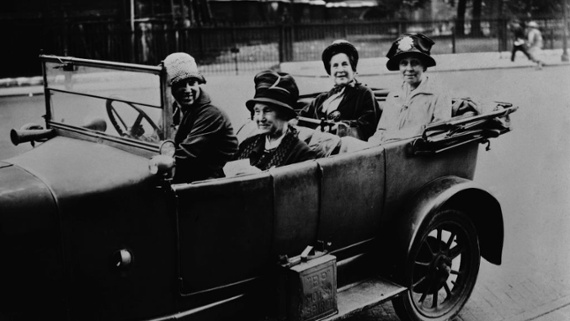2 July 1928: Women given equal voting rights with men
On this day in 1928, the Representation of the People (Equal Franchise) Act extended equal voting rights to women, lowering the voting age to 21.


Get the latest financial news, insights and expert analysis from our award-winning MoneyWeek team, to help you understand what really matters when it comes to your finances.
You are now subscribed
Your newsletter sign-up was successful
Want to add more newsletters?

Twice daily
MoneyWeek
Get the latest financial news, insights and expert analysis from our award-winning MoneyWeek team, to help you understand what really matters when it comes to your finances.

Four times a week
Look After My Bills
Sign up to our free money-saving newsletter, filled with the latest news and expert advice to help you find the best tips and deals for managing your bills. Start saving today!
Women had been given the vote in 1918. But only those of at least 30 years of age could cast it, and those who did had to meet certain property-owning requirements.
The Representation of the People (Equal Franchise) Act 1928, introduced to Parliament in March that year, provided for the removal of these obstacles, and the lowering of the voting age for women to 21 (the same as men).
That month, prime minister Stanley Baldwin gave a speech in London to thousands of women. "The whole nation", he said, "men and women alike, will express themselves effectively in the ballot box without any qualification or disqualification of sex. That prospect does not alarm me in the least."
MoneyWeek
Subscribe to MoneyWeek today and get your first six magazine issues absolutely FREE

Sign up to Money Morning
Don't miss the latest investment and personal finances news, market analysis, plus money-saving tips with our free twice-daily newsletter
Don't miss the latest investment and personal finances news, market analysis, plus money-saving tips with our free twice-daily newsletter
That the prime minister should make this last point says a lot about prevailing attitudes at the time among some sections of society. Two of the most outspoken critics of equal voting rights (and even women simply being involved in politics) were Lords Newton and Birkenhead.
In Suffrage and Power: The Women's Movement 1918-1928, Cheryl Law notes that, in Newton's view, the only possible use for women in the House of Lords was to scold younger peers into attending. But really, "Newton thought chorus girls would probably be better, because they were more attractive!"
As for Birkenhead, the job of women peers was to breed and populate the upper chamber with future lords, "although he doubted that any of the peeresses in question qualified even on those terms".
The campaigning women's societies were outraged, adds Law, but the winds of change were already blowing in their favour.
"The fear that the country would be governed by flighty, uneducated, irresponsible young things was groundless", The Times argued. The Bill was "the inevitable last chapter of a political history that began with the representation of interests to the representation of the people in 1832".
And so it proved. On 2 July 1928, the Bill received royal assent, extending the vote to an additional 5,221,902 women.
Also on this day
2 July 1897: Marconi is awarded a patent for radio
Get the latest financial news, insights and expert analysis from our award-winning MoneyWeek team, to help you understand what really matters when it comes to your finances.

-
 Should you buy an active ETF?
Should you buy an active ETF?ETFs are often mischaracterised as passive products, but they can be a convenient way to add active management to your portfolio
-
 Power up your pension before 5 April – easy ways to save before the tax year end
Power up your pension before 5 April – easy ways to save before the tax year endWith the end of the tax year looming, pension savers currently have a window to review and maximise what’s going into their retirement funds – we look at how